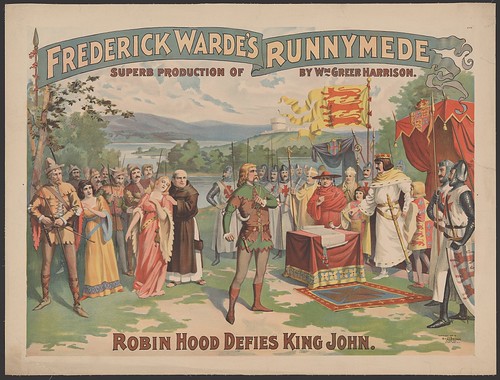800
years ago this week my ancestor signed one of the most important documents in
world history. But he is definitely not to be admired. And I guarantee you are
familiar with him.
On June 15, 1215, King John
met 40 rebellious barons in a field at Runnymede. He gave in to their demands
to stave off a civil war, affixing his seal to Magna Carta.
These barons confronted a
tyrant in order to protect their rights and property. Principles within the
document have been passed down to democratic nations, such as:
"No freeman
shall be taken, imprisoned, disseised, outlawed, banished, or in any way
destroyed, nor will We proceed against or prosecute him, except by the lawful
judgment of his peers or by the law of the land."
"To no one will
We sell, to no one will We deny or delay, right or justice."
Magna Carta has been stamped
into our Constitution and our Bill of Rights. The Fifth Amendment to the
Constitution displays its mark: "No person shall . . . be deprived of
life, liberty, or property, without due process of law.”
So, yes, I have a famous
ancestor, good old villainous King John. But even if you spaced out on Magna
Carta in history class, you still should know him. Everyone should be familiar
with a genre that has given him much exposure through the years—the Robin Hood
tales. Yes, my great-gramps (x25) is the bad guy in Robin Hood, the one to whom
the sheriff of Nottingham answers, Prince John.
But 800 years ago, he won
the barons’ approval. And, shock of shocks, while he changed his mind later and
the document was nullified, it was reissued through the years and has given
today’s democracies their character.
My 25 x great-gramps was a
bad guy. But it was precisely because he was so bad that Magna Carta was
drafted. And, if you’re not grateful for that, just remember—without him there
probably would never have been a Robin Hood. And who can imagine a world
without Robin Hood?
